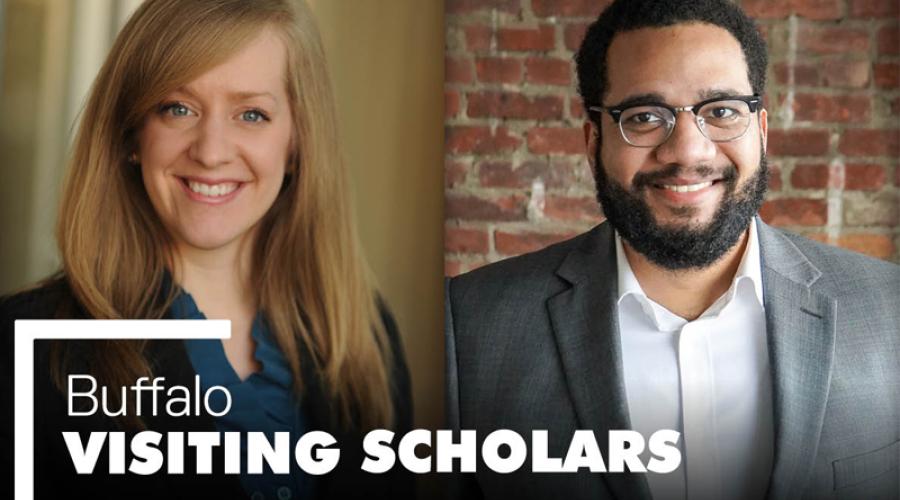
Buffalo Co-Lab Announces Visiting Activist Scholars for 2021
The Cornell Buffalo Co-Lab has announced that Andrea Ó Súilleabháin and Miles Gresham will serve as visiting activist scholars the spring. In its third year, this is the first time the activist scholar program has brought in a pair of appointees.
“Utilizing the rich ILR-connected civic, economic, cultural and educational network in Buffalo that has promoted innovative university-community learning for decades, these visiting scholar appointments are valuable to students, faculty and to ILR’s land-grant mission to improve work and economic vitality,” said Cathy Creighton ’87, the newly appointed Buffalo Co-Lab director.
Ó Súilleabháin and Gresham are public interest lawyers and community leaders who have experience in advocacy, policy negotiations, and advising both government actors and community groups. Both also have experience teaching – Ó Súilleabháin as a visiting lecturer at the Columbia University School of International and Public Affairs and Gresham at the Upward Bound program at the University of Buffalo. Each regularly lectures and presents on contemporary issues to community groups, higher education classes and conferences.
The focus of Ó Súilleabháin and Gresham’s joint appointment will be the role of community members and groups in policy change negotiations. As calls for racial justice and economic equity grow louder, the roles of community members and coalitions in achieving policy change is a central interest for many ILR students. This opportunity will allow students to learn about, and explore policy negotiation case studies, with skilled practitioners. It will also provide a critical space for students to reflect on the racial justice uprisings of summer 2020, and the deep inequities exposed by the COVID-19 pandemic.
The duo will teach a remote course, Resetting the Table: Community Participation in Policy Negotiations. The course will explore the impact and benefits of community and civil society participation in policy negotiations. It will examine how policy negotiation tables are set to exclude or include community members, and models for community participation from direct representation in negotiations such as public hearings.


